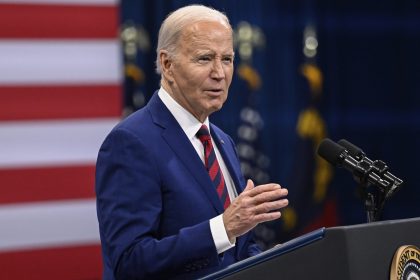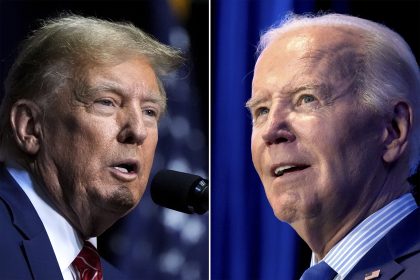Americans Expect Biden to Improve Environment, Grow Budget Deficit

WASHINGTON — A majority of Americans surveyed by Gallup predict the incoming Biden-Harris administration will make improvements to the environment and education while likely raising taxes and the national deficit.
Gallup published its findings as part of an ongoing series of “public opinion surveys designed to monitor U.S. adults’ views on numerous social, economic, and political topics,” according to the Gallup website. The company interviews U.S. adults aged 18 and older living in all 50 states and the District of Columbia using samples of landline and cellphone numbers using random-digit-dial methods.
Gallup’s data, collected between Jan. 4 and Jan. 15, found that Biden has the lowest expectations for reducing the federal budget deficit since 1980. However, 68% of Americans approve of Biden’s handling of the transition and roughly 40% gauged his cabinet appointments as either “outstanding” or “above average,” according to Gallup’s findings.
Views on Biden’s transition were divided sharply along partisan affiliations, with 96% of Democrats, 71% of independents and 27% of Republicans expressing approval respectively. Gallup found Americans’ views on Biden’s handling of the transition tracks closely with President Bill Clinton’s in 1993.
Biden lacks the enthusiasm Americans showed for President Barack Obama’s first term in 2009 when 72% of Republicans said they approved of his administration’s transition. Biden’s popularity is also lower among independents than Obama’s was by a margin of 71% to 81%, respectively.
Republicans on average expressed higher approval for Biden’s transition than Democrats did of President Donald Trump’s transition in 2017 by a margin of 27% to 13%, respectively. Similarly, the public’s views of Biden’s cabinet appointees were lower than Obama’s but track closely with the views of President George W. Bush’s appointees and higher than Clinton and Trump’s appointees.
Just 14% of respondents considered Biden’s cabinet appointees “outstanding,” while 27% considered them “average.” About 10% of survey respondents considered Biden’s cabinet appointees “below average” and 17% considered them “poor” choices.
Individually, Biden and Vice President-elect Kamala Harris’ favorability ratings were 57% and 53%, respectively, according to Gallup’s findings. Biden’s highest individual favorability rating was recorded in Jan. 2017 at the end of his second vice-presidential term.
Gallup’s findings on Americans’ expectations for Biden’s term were gathered between Dec. 1 and Dec. 17, 2020, and respondents with no opinion of an expectation were omitted. The surveyors sampled respondents’ expectations for 15 specific national and foreign policy goals in terms of either an affirmative or negative response.
Over 60% of respondents said they expect President-elect Joe Biden will improve the quality of the country’s environment, improve education, improve conditions for minorities and the poor, and increase respect for the United States abroad.
By varying margins, more than 50% of the survey’s respondents predict the Biden-Harris administration will improve the health care system, keep the country safe from terrorism, improve race relations domestically, reduce unemployment, improve the economy and keep the nation out of war.
The survey’s respondents predicted Biden would fail at five specific policy goals: controlling illegal immigration, healing political divisions in the country, reducing the crime rate, avoiding tax increases and substantially reducing the federal budget deficit.
Despite the relatively rosy outlook of the incoming administration, conservatism remains the country’s most dominant political philosophy, according to Gallup. On average, 36% of Americans identify as conservative, while 35% identify as moderate and 25% identify as liberal.
Generally, Americans appear to be less optimistic for Biden’s term as president than they were for Obama in 2008. Conversely, the country on average appears more optimistic towards Biden than it was for Trump in 2017 or Bush in 2001.
























